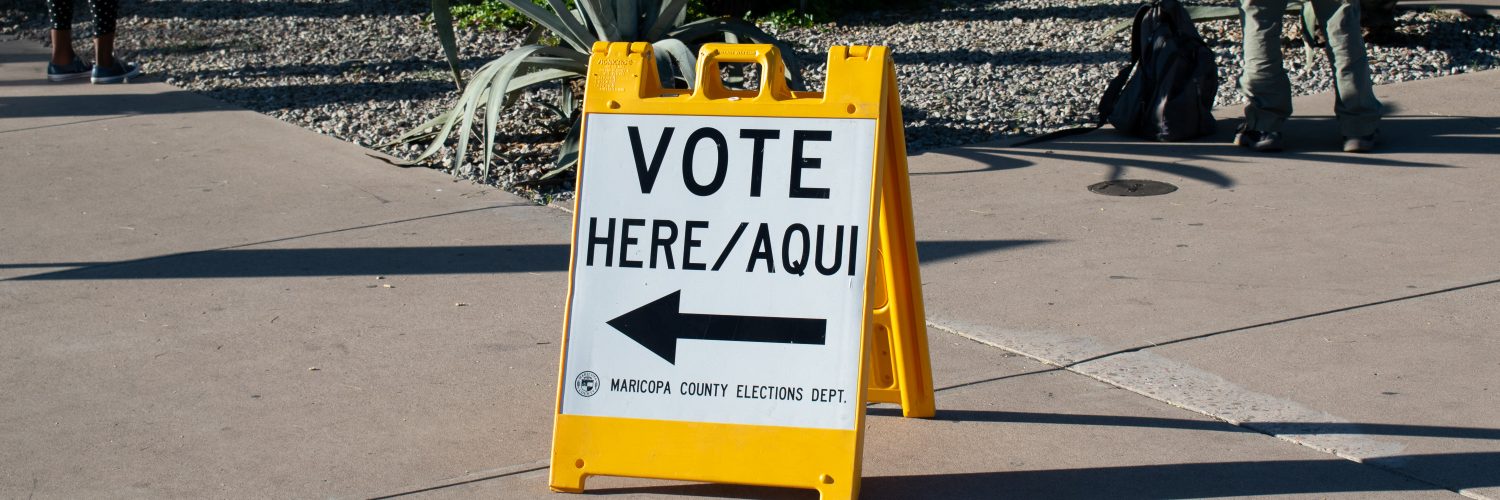Arizona voters spelled out their wishes clearly on a number of ballot measures Tuesday with several winning and losing by landslides.
In a huge victory for businesses and consumers, a renewable energy mandate that would have forced utilities to provide half of their energy from renewable sources over the next decade failed by a huge margin. Called Proposition 127, voters defeated it handily 69 to 31 percent.
Utilities statewide warned early on in the campaign that they would have to raise electric rates to pay for the costly mandate. Emission-free nuclear power was excluded from the measure, so the Palo Verde nuclear power plant would have faced premature closure, utility officials said.
“Much will be written and said in the coming days about why Prop. 127 was defeated, but it’s really pretty simple,” said Matthew Benson, spokesman for Arizonans for Affordable Electricity that fought hard against the measure. “Arizonans support solar power and renewable technology, but not at the expense of an affordable, reliable energy supply.”
On the winning side were ballot measures that approve changes to two state pension plans, alter authority over the state’s clean elections commission, and prohibit imposing new sales taxes on business services in Arizona.
Here is a roundup of the key measures:
FAIL Proposition 127: renewable energy mandate
A fight over the measure was labeled the most expensive ballot campaign in state history with over $54 million spent.
The initiative would have changed the state constitution to force utilities to produce half of their electricity from renewable sources by 2030. Current state rules require 15 percent by 2025.
More than 300 groups and individuals statewide joined to oppose it because it was expected to raise electric rates on those who could least afford it like small businesses, the working class and poor, and elderly on fixed incomes. The initiative excluded nuclear which would have led to the premature shutdown of the largest single taxpayer in the state, Palo Verde Generating Station, plant officials said.
Pushing the initiative was California billionaire Tom Steyer, whose political action committee (PAC), NexGen, spent $23.2 million on the campaign. California has been ramping up renewables and forcing early closure of nuclear power plants. It also has the fifth highest electric rates in the country, according to the U.S. Energy Information Administration.
On the opposing side was Arizona Public Service’s parent company, Pinnacle West Capital Corp. that spent $29.9 million through its PAC, Arizonans for Affordable Electricity. Arizona ranks 21st for electric rates.
PASS Proposition 125: makes state pension plans sustainable
This proposition is intended to make the retirement system for correctional officers, probation officers, surveillance officers and elected officials more sustainable. The change allows two state public pension plans to provide promised retirement benefits to these groups while also reducing state and local government’s long-term pension costs. It passed 52 to 48 percent.
Prop. 125 was referred to the ballot by the Legislature to make adjustments to retirement plans based on cost-of-living instead of permanent benefit increases. The plans affected are the Corrections Officer Retirement Plan and Elected Officials’ Retirement Plan.
PASS Proposition 126: prohibits new tax on business services
The state Realtors association launched this measure to prevent taxes on real estate services as well as new taxes on any business services including veterinary, health care and child care. The measure passed 65 to 35 percent.
It amends the state constitution to prohibit government entities from imposing new or increasing transaction-based taxes, fees, stamp requirements, or assessments on any services performed in the state or the gross receipts of sales and services performed here. It will not repeal any assessment put into effect before December 31, 2017.
FAIL Proposition: 305 School voucher expansion
This proposition would have expanded Arizona’s Empowerment Scholarship Accounts by gradually increasing the percentage of students in kindergarten through twelfth grade eligible to receive the voucher and spend it on educational assistance at a private or home-based school. Voters defeated the measure 65 to 35 percent.
PASS Proposition 306: Clean Elections Commission changes
A measure referred to the ballot by the Legislature makes changes to the current Citizens Clean Election Act that provides public funds for candidates for statewide and state legislative offices. It prohibits candidates from making direct or indirect payments from their campaign account to a political party or a “private tax-exempt organization that is eligible to engage in activities to influence the outcome of a candidate election.” It passed 56 to 44 percent.
















Add comment